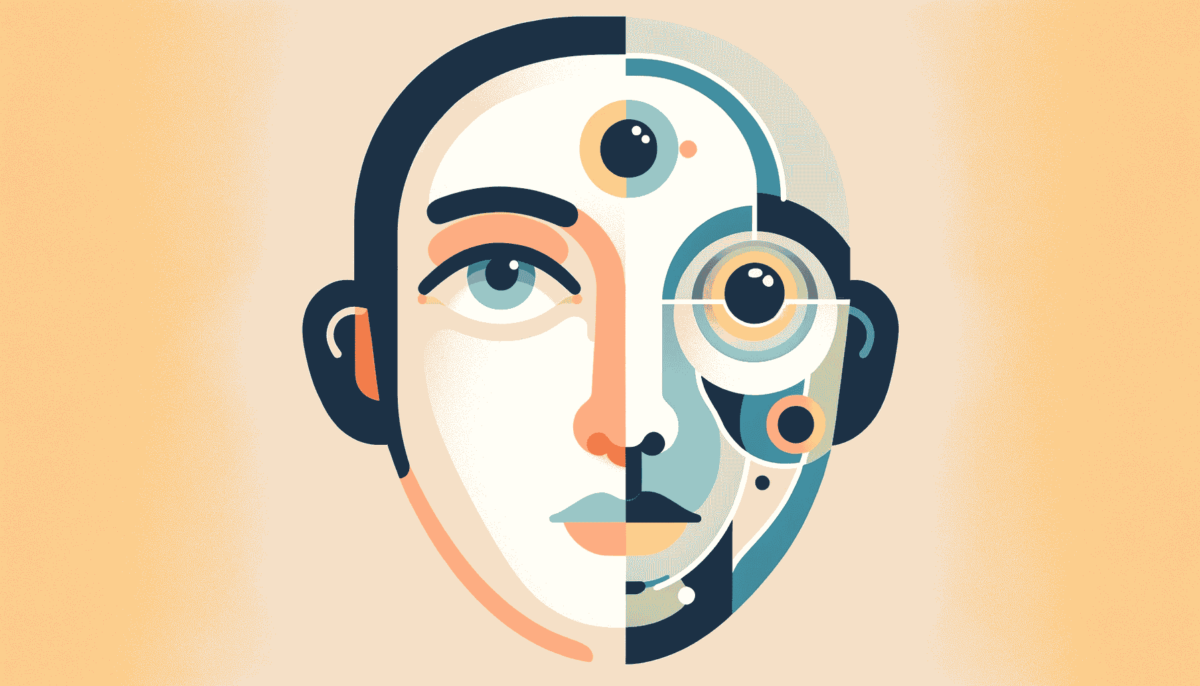In this article. we will talk about a interesting research that is published in a repeated journal. The link can be found here.
Introduction to Divergent Thinking and AI
Divergent thinking, a key component of creativity, refers to the ability to generate multiple, unique solutions to a problem. This type of thinking is contrasted with convergent thinking, which is about finding the single, correct solution to a problem. The realm of artificial intelligence (AI) has seen significant advancements, with AI systems being developed to mimic and even surpass human capabilities in various tasks. However, when it comes to creative endeavors, particularly divergent thinking, the extent to which AI can replicate human creativity remains a subject of exploration and debate.

The relationship between the semantic distance scores of originality and the human-made subjective ratings for (A) the mean scores and (B) the max scores. (image : https://www.nature.com/articles/s41598-023-40858-3)
Study Overview
The study under discussion aimed to compare human creativity with AI in the context of divergent thinking. Researchers used the Alternate Uses Task (AUT), a commonly employed method in psychology to assess creativity. In AUT, participants are asked to think of as many uses as possible for a common object, like a brick or paperclip. The uniqueness and practicality of these uses are then evaluated. This study sought to understand whether AI can match or surpass human performance in generating creative, diverse solutions.
Methodology
In conducting the study, the researchers selected a group of human participants and paired them against advanced AI chatbots. Each participant, human or AI, was given the same set of objects and asked to generate as many alternative uses as possible within a specified time frame. The responses were then evaluated based on predefined criteria to measure creativity, including factors like originality, elaborateness, and practicality. This methodology provided a direct comparison between human and AI performance in a controlled setting.
Findings and Analysis
The study revealed that, on average, AI chatbots displayed a higher degree of creativity compared to the average human participant. However, the most creative ideas, those that were truly novel and practical, still came from human participants. This suggests that while AI can generate a large number of potential solutions, it may lack the depth and nuanced understanding that humans bring to truly creative tasks. The findings raise important questions about the nature of creativity and the limits of AI in replicating this distinctly human trait.
Human Creativity: Unique and Complex
Human creativity is characterized by its complexity and depth. Unlike AI, which operates based on algorithms and data processing, human thought processes are influenced by emotions, experiences, and subjective perspectives. These factors contribute to the unique and often unpredictable nature of human creativity. The study's findings underscore that despite AI's ability to simulate certain aspects of creativity, it cannot fully replicate the intricate and often abstract thought processes that humans use to generate truly novel ideas.
AI's Role in Enhancing Creativity
While AI may not yet match the most creative humans, it still plays a significant role in enhancing creative processes. AI can assist in brainstorming sessions, provide inspiration, and offer a vast array of possibilities that humans might not consider. The future of AI in creativity lies in its potential to collaborate with human minds, combining the speed and data-processing capabilities of AI with the depth and complexity of human thought to create novel solutions and ideas.
Conclusion
The study highlights the current state of AI in creative tasks, particularly divergent thinking, and emphasizes the unique qualities of human creativity that AI has yet to replicate. As AI continues to evolve, it will be interesting to see how it augments human creativity further. The collaboration between human and machine in creative endeavors opens up new possibilities and challenges, prompting a reevaluation of the roles of AI and human creativity in solving complex problems.
a blog by bibhatsu kuiri . ©bkacademy
btw you can follow me on social media 🙂 👇
-.-.-.-.-.-.-.-.-.().-.-.-.-.-.-.-.-.-
